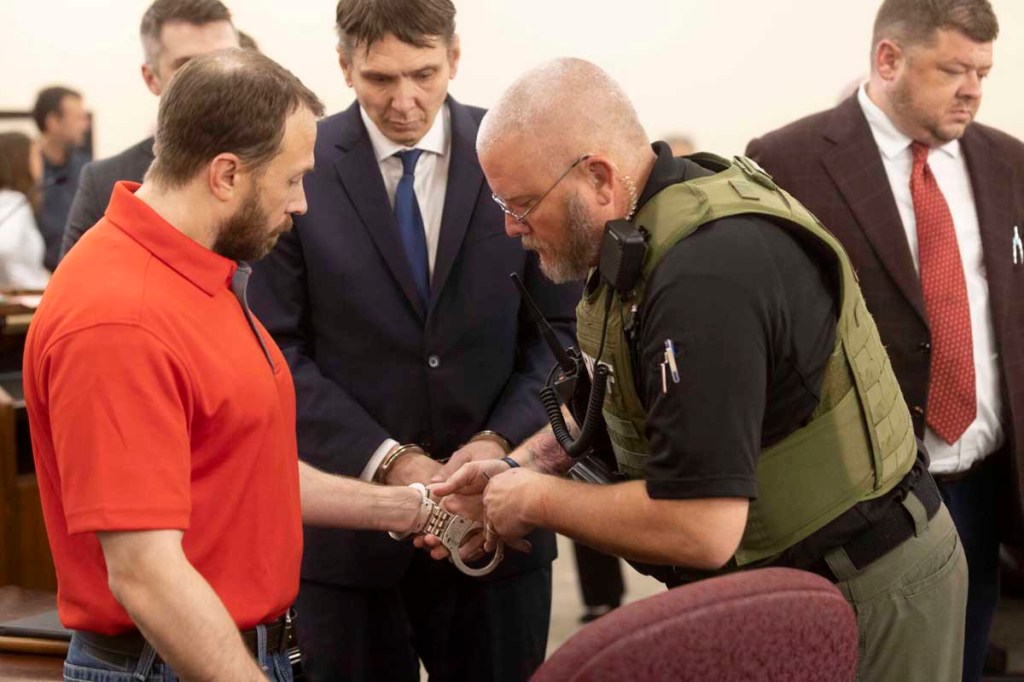Man released from Ga. prison 25 years after wrongful conviction in friend’s death
Published 2:46 pm Saturday, December 17, 2022

- Darrell Lee Clark was released from the Floyd County Jail Dec. 8 after serving nearly 25 years imprisoned for a wrongful conviction in his friend's death. Photo from Georgia Innocence Project
ROME, Ga. — After nearly 25 years of being wrongly imprisoned for 1996 death of his friend, Darrell Lee Clark was released from the Floyd County Prison Dec. 8 just in time for the holidays.
Trending
“You never think something like that is going to happen to you,” said Clark, who was arrested when he was just 17 years old, according to a news release from Georgia Innocence Project. “Never would I have thought I would spend more than half my life in prison, especially for something I didn’t do. I’m just glad the truth finally came to light after 25 years. I’m so thankful for the Georgia Innocence Project (GIP) and Proof Podcast for what they did. Without them, I would still be in prison.”
GIP took on Clark’s case in 2021.
“We are elated to see Lee and his family finally obtain the justice that is so long overdue. This would not have been possible without the Bowling family’s support and a district attorney’s office that was willing to take an objective, new look at an old case,” said GIP Attorney Christina Cribbs, who represented Clark alongside Accountability Counsel Meagan Hurley. “The Bowling family suffered a great loss when Brian died. Their strength, open minds, willingness to question information that has been presented as ‘fact,’ and quest for the truth is inspiring.”
According to court documents, 15-year-old Brian Bowling died in 1996 from a gunshot wound to the head. Moments before, Bowling was reportedly on the phone with his girlfriend and had told her that he was playing Russian Roulette with a gun brought over by his best friend, 17-year-old Cain Joshua Storey, who was present in the room when the shooting occurred.
Police charged Storey with manslaughter, but police later began investigating the death as a homicide months after the shooting occurred at the urging of Bowling’s family.
Court records indicate that police interviewed a woman who lived near Bowling’s home who had hosted a party months after Bowling’s death that was attended by both Clark and Storey. At the party, she alleged the two explained that they murdered Bowling because he knew too much about a theft that Storey and Clark had committed.
Trending
Days after speaking with the party hostess, police upgraded Storey’s charge from manslaughter to murder and also connected Clark to the case, arresting him as a co-conspirator.
Documents also indicate that a hearing and speech-impaired witness who was at the Bowlings’ home when the shooting occurred identified Clark from a photo lineup as the boy he saw running through the Bowling’s yard on the night of the shooting.
Clark was ultimately sentenced to life in prison.
In late 2021, Proof true crime podcasters Susan Simpson and Jacinda Davis began interviewing the two key witnesses related to Clark’s case as part of a re-investigation of the circumstances surrounding Bowling’s death, according to GIP.
They discovered that the party hostess was coerced into giving false statements and testimony by police who she claims threatened to take her children from her if she failed to comply with their demands.
The hearing and speech-impaired man had been misunderstood at trial due to his unique way of communicating, according to recent revelations. In 1976, the man had witnessed an unrelated, factually similar shooting and he was unable to effectively separate the facts of that case from the circumstances surrounding Bowling’s 1996 shooting death.
The Rome Judicial Circuit District Attorney’s Office in September agreed that Clark’s conviction should be overturned and dismissed all underlying charges against Clark, officially exonerating him of Bowling’s death. Storey was also released after being exonerated of murder charges.
“Official misconduct was certainly a contributing factor in Lee’s case, just as it has been in over 50% of wrongful conviction cases. What we should take away from this is that unfettered power, without proper checks and balances, leaves ripe the opportunity for mistakes and misconduct. Proper oversight, coupled with educational initiatives designed to prevent and correct wrongful convictions, is key,” said Hurley.
“Prosecutors have a duty to see that justice is done in their cases, and that must include a commitment to principles of integrity, equity and accountability. It is imperative that they are willing to take corrective action when they see injustice, including when the injustice is perpetrated by police.”
For the first time in decades, Clark’s father, Glen Clark, embraced Darrell Dec. 8.
“I’ve been waiting on this day for a long, long time, and I can’t begin to thank everyone who has supported us. Without y’all, we wouldn’t have made it,” said Glen Clark following his son’s release. “While today is a day of celebration for us, I also want to let the Bowling family know how heavy our hearts are for them and for what happened. There are no hard feelings; we love them.”
Georgia is one of 12 states that does not currently have a statutory compensation law to provide financial relief for years lost to wrongful conviction, thought there have been legislative attempts in recent years.
This session, the “Wrongful Conviction Compensation Act” (House Bill 1354) failed to advance in the Senate, despite approval in the House in a 157-11 vote.
The Wrongful Conviction Review Panel, which would have been created through the bill, would review the exoneree’s claim and recommend between $50,000 to $100,000 per year for each year of wrongful incarceration.
Of the nearly 3,000 exonerations that have occurred in the country since 1989, 61% were due to perjury or false accusation, and 56% involved official misconduct from police or prosecutors, according to National Registry of Exonerations.
A public fundraiser has been set up to help Clark and his family at www.mightycause.com/story/Supportleeclark.





